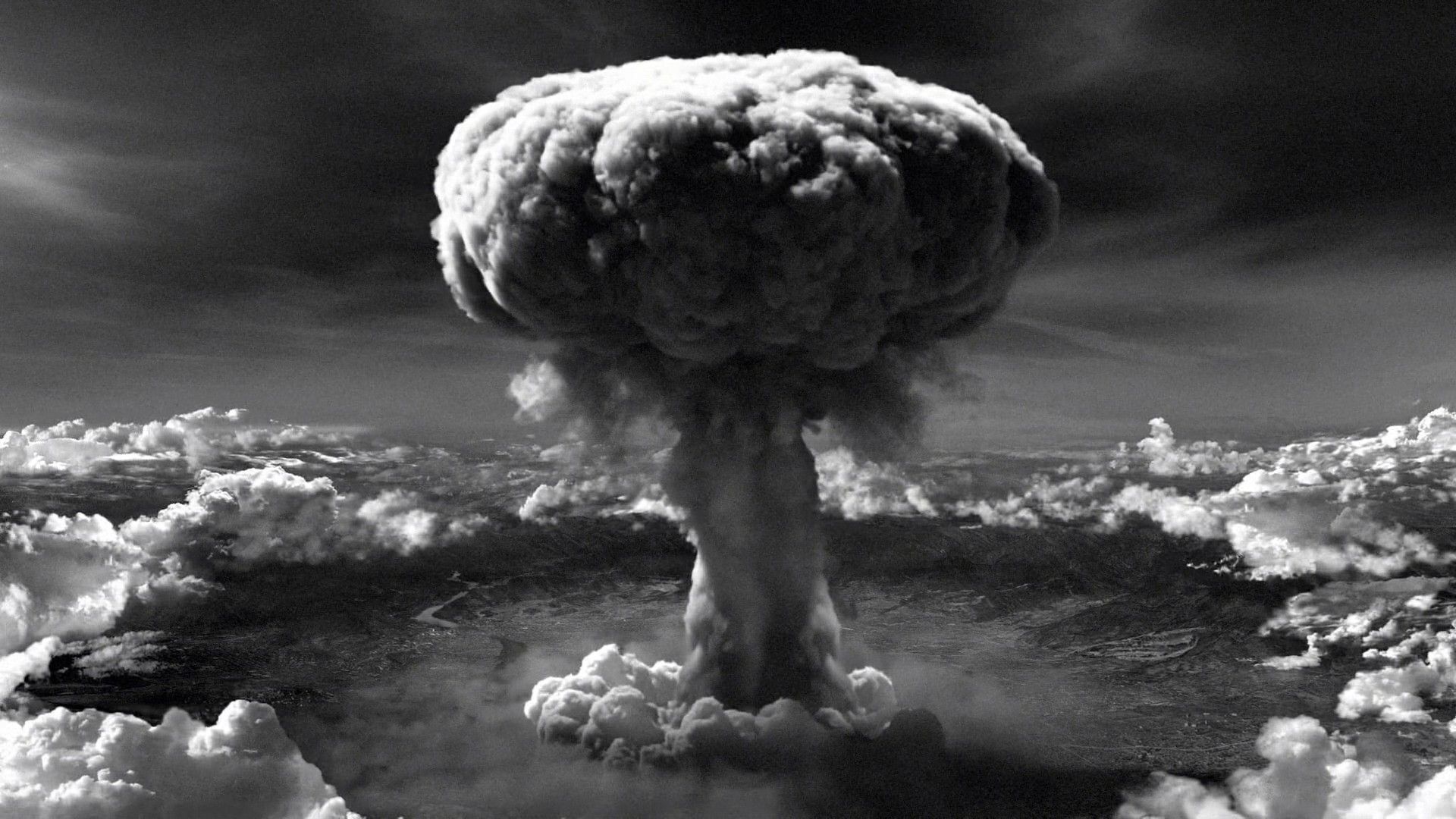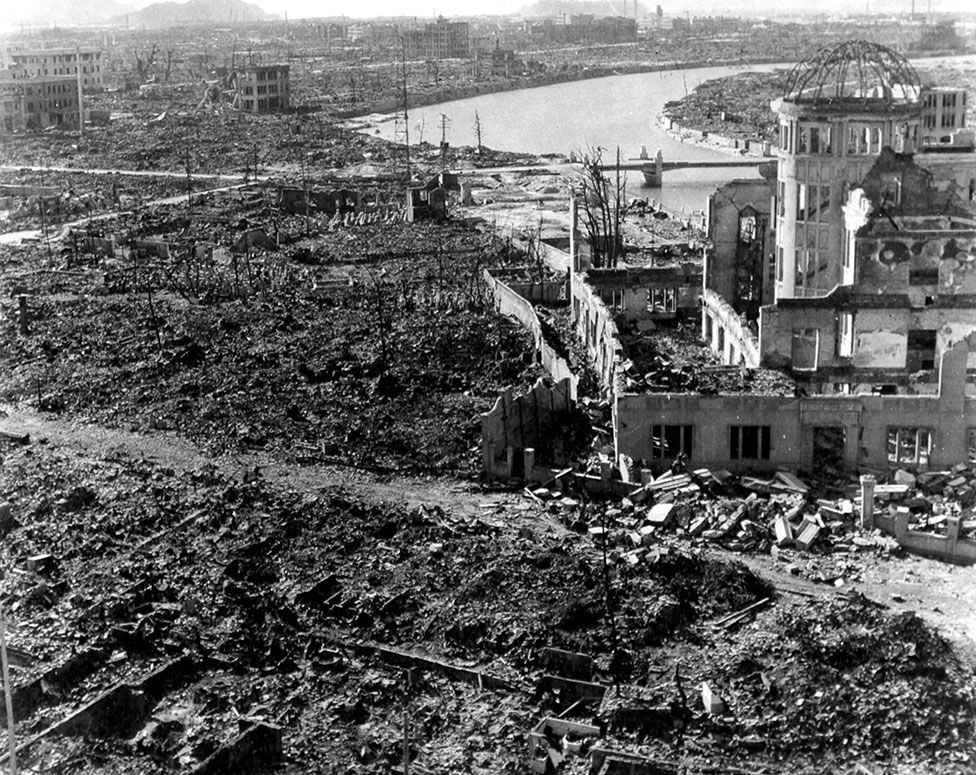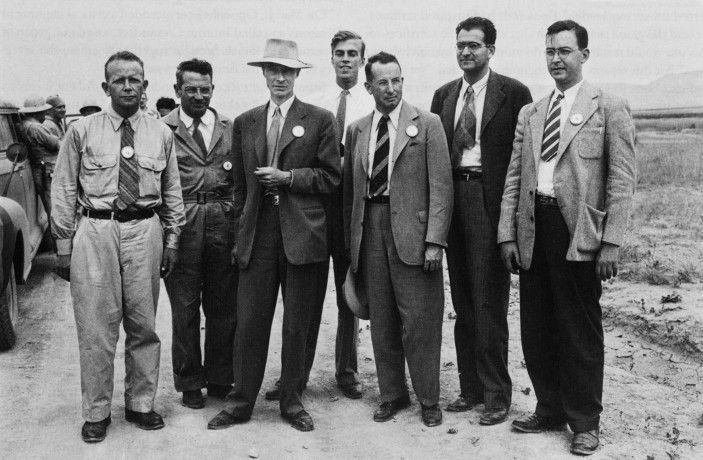The Atomic Bombing of Hiroshima: Was It Justified?
To what extent was the atomic bombings of Hiroshima and Nagasaki justified? Seeing a giant mushroom cloud tinted by flames can be devastating.
Seeing a giant mushroom cloud tinted by flames can be devastating. However, as US President Harry S. Truman might say, it did save a lot of “American Lives". This raises the question: to what extent was the atomic bombings of Hiroshima and Nagasaki justified?
It is logical to say that dropping the bombs had led to a quick Japanese surrender—it is straightforward. The drop of the atomic bomb, because of its devastating damage, had also made world leaders more cautious about their decisions to reduce the likelihood of future disputes and war.

Some people believe that the Japanese would surrender without the atomic bomb—this is displayed most prominently by wartime leaders in America, for example, President Dwight D. Eisenhower and Admiral William Leahy during the 1900s (Van de Velde 453). However, can we trust Americans’ opinions about Japan’s motives in July 1945? Suppose we were to look at whether Japan would have surrendered sometime soon without the impact of the bomb. In that case, we should see things from Japanese leaders’ perspectives and attitudes - and when we do this, we will find out that it is unreasonable to believe that Japan foresaw the end of the war even after mid-August.
According to James R. Van de Velde, a lecturer from Yale University:
The Enola Gay Saved Lives, Japan planned to defend its main islands in autumn. This means that even if the Japanese had prepared to surrender later, it is undeniable that it was not until or after September that they would do so.
The delay of her surrender would have provoked many Japanese casualties, as other countries, such as the US and the USSR, would have attacked Japan through different means, such as invading Japan.
In other words, the bomb sped up the process of Japanese civilians dying but simultaneously ended the war and paved the way for peace.
Decision to Drop the Atomic Bomb
In July 1945, 150 of the 300 scientists working on the Manhattan Project (the research undertaken to produce the first-ever nuclear weapon) were asked to poll their perspectives on using the bomb. While the majority voted for the atomic bomb being used, among these scientists, only 23 supported it as the most effective military way to end the war. At the same time, 69 considered it a “military demonstration in Japan” with the by-productbeingJapan placing surrender. This point can be supported by the fact that in June 1945, the first cities the US chose for bombing were Hiroshima, Kyoto, and Kokura; however, after that, they removed Kyoto and chose Nagasaki instead.

According to a survivor, Akihiro Takahashi, those cities were “already destroyed,” so he thought that the bomb was a test for its destructive power to see how much it could cause harm to humans, keeping in mind that the bombs dropped were of different types - uranium and plutonium, Takahashi’s opinion might just be accurate as it conveyed the impression that the US was testing which bomb could be relied on. This shows that the decision to use the bomb can be questioned to a great extent, and the fact that it is considered a “military demonstration” strengthens the hint that Truman could have just been using Japan for testing instead of using it to end the war.
Additionally, in 1945, the international law of a fair war was an idea that states that only combatants or soldiers should be targeted and any harm caused to civilians must be necessary for achieving military goals. Having said this, the possibility that Truman employed the use of the bomb for testing violated this law, and because of this, thousands of civilians were killed, not to mention the long-lasting effects on Japan, such as radiation.

There was also a group of scientists led by Leo Szilard, who disagreed with using the bomb because the “secrets” of the atomic bomb would be exposed worldwide. Although the scientists in this project do not necessarily participate in political or military settlements, one should consider their perspectives in the decision to use the bomb because they were ultimately the people who had full knowledge about the project.
Taking Szilard’s case as an example—the group was ignored by Truman’s foreign policy advisor James Byrnes, and neither did he discuss this with Truman; he even considered them “unworldly intellectuals”, neglecting the question: who but these scientists know better the consequence of the enforcement of such newly developed nuclear weapons? Byrnes, completely bypassing the scientists’ opinions, suggests that they wanted to focus solely on their other reasons for using the bomb, possibly political reasons.
The Nuclear Arms Race
American revolutionist historian Gar Alperovitz once argued in his book Atomic Diplomacy: Hiroshima and Potsdam that using the atomic bomb was a diplomatic and political act rather than a military decision, primarily because it had postponed the Potsdam Conference. They were allowing the nuclear weapon to be demonstrated before the Potsdam Conference had allowed the United States’ political position to be reinforced in Eastern Europe’s anti-Soviet policies while effectively putting the Second World War to a definite end apparently, diminishing time for the Soviets from invading Manchuria and gaining complete control over it. Later in his book “Years of Decisions”, Truman “casually mentioned” to Soviet Premier Joseph Stalin that he had developed “a new weapon of unusual destructive force”. In other words, the bomb was to intimidate the Soviet Union. This interpretation of Alperovitz supports my point illustrated above: Truman and Byrnes focused on political claims towards using nuclear weapons.
Right after the end of the Second World War (1945), the USSR and the USA did not see eye-to-eye because of their different political ideologies - the communist bloc led by the Soviet Union and the capitalist bloc led by the USA. They weren’t on good terms with each other even during the war - their familiar rival, Hitler, made them allies. So, it makes sense that the Cold War was bound to happen after their common enemy was defeated. The effects of this war mainly were a dramatic decline in the USSR’s economy and an overwhelming number of American soldier deaths. After the atomic bomb, though, the USA had “impressed” but also surprised Stalin - so, could the nuclear bombings, in some ways, have kick-started the Cold War?
The atomic bomb triggered Stalin. According to Soviet general Georgii Konstantinovich Zhukov, when Truman mentioned that they developed “a new weapon of unusual destructive force”, Stalin immediately presumed that it was an atomic bomb. In his memoir, The Memoirs of Marshal Zhukov, Zhukov said it was already explicit to them that America was trying to use the bomb to enhance her diplomatic position. Stalin even said that America killed the Japanese to alarm the Soviet Union. After this, they started researching the bomb, suggesting that Stalin commanded their scientists to develop their nuclear weapons, which is a sign of the embarkation of the Cold War’s nuclear arms race. In a nutshell, traces of the Cold War were already seen during the Second World War as soon as Truman mentioned the atomic bomb.
